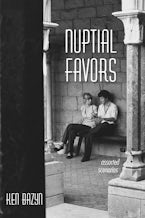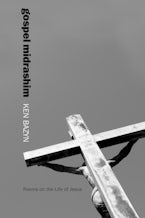After a close reading of the imagery of Song of Songs in its ancient Near Eastern context, Bazyn reveals the ins and outs of love via a series of startling metaphors. His language is strong and direct, commemorating intense emotions, exposing varied vulnerabilities. You hear tales of a music box, a keepsake, a valentine, a love potion, a romantic boat ride--wistful longings punctuated by profound regrets.
The beloved is compared to a rugged outcropping, urban architecture, a bounding gazelle. We encounter teasing and laughter, nudity and deepened communion, misunderstandings and tears. There are bold entreaties at the beloved's door, tongue-in-cheek conquests, forbidden rendezvous, everyday marital squabbles, dream premonitions, adolescent intrigues, and heartrending partings.
Bazyn's lyrics run the gamut from Proust-like sensory associations to consoling lullaby, from frenetic mania to soulful self-admonition. He revisits Greco-Roman classics (e.g., the judgment of Paris, the sorrowing nymph Echo, Odysseus's faithful wife Penelope, the revenge of Medea) and reinterprets Scripture (the sensual beauty of Sarah, Hosea's marriage to a whore, Jesus's parable of the foolish virgins).
Bazyn's imagery dances in your head. The unretouched black-and-white photos help sear his ideas into your imagination. You begin to reminisce about the vicissitudes of your own relationships.
Ken Bazyn is long-time editorial director of Religious Book Club. He has written The Seven Perennial Sins and Their Offspring and Soul-Wrestling: Meditations in Monochrome. He has published articles in forty periodicals, from Commonweal to Dialog, and his photographs have appeared in forty-five magazines. His previous books of poetry are Gospel Midrashim: Poems on the Life of Jesus, Jesting Angels: God's Lighter Side, Artistic Alchemy: Transmuting Cinnabar into Gold, and Humanity: The Fallible Amphibian.
“This is a superabundant collection of poetry with references to Greek and Latin sources. I found it filled with the wisdom of marital love which has unfolded over many years.”
—Charles M. Murphy, author of Mystical Prayer: The Poetic Example of Emily Dickinson









